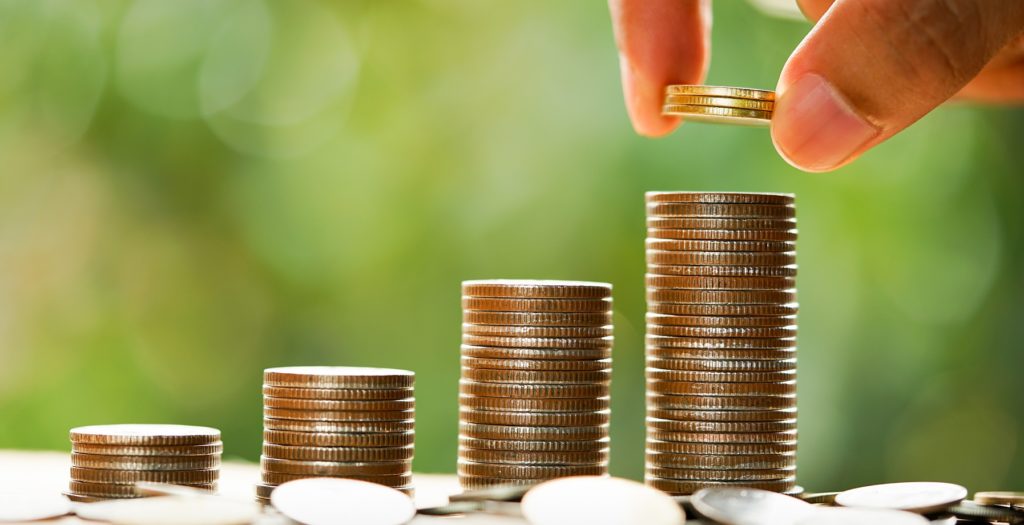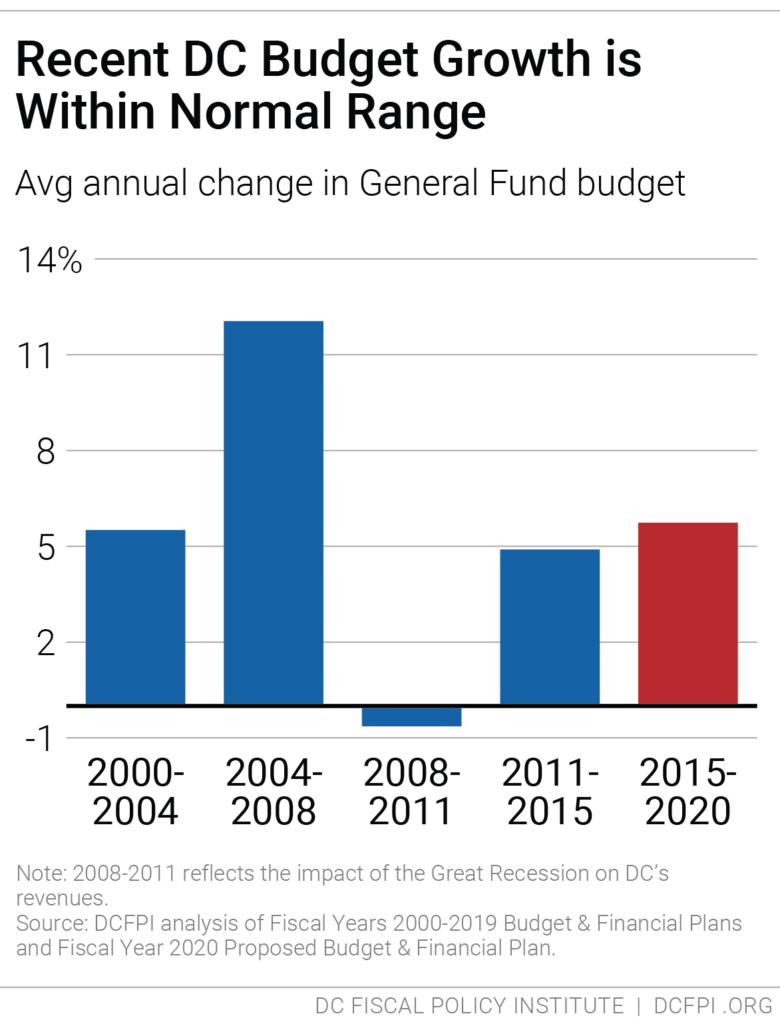The growth in the DC budget under Mayor Bowser has largely been in line with historical growth in the DC budget. While some leaders have raised concerns about the growth in the proposed fiscal year (FY) 2020 budget, taking a longer view suggests that the DC budget is growing at a standard pace.
The FY 2020 budget, as proposed by the Mayor, is growing by 8.3 percent,[1] but budget growth in a given year is affected by many factors. A surge in school enrollment may dramatically increase a budget from year to year, for example. Budgets can also grow in one year when special needs arise, like the notable increase in funding for Metro in FY 2020. With this in mind, it’s important to look at ranges of time to get an accurate picture of budget growth.
Between 2015 and 2020 (using the proposed budget), DC’s budget growth averages 5.7 percent per year. This is only slightly higher than in the prior four years and lower than in some other periods:
-
- Between 2011 and 2015 the budget grew 4.9 percent per year.
- Between 2008 and 2011 the budget shrunk 0.6 percent, largely due the impact of the Great Recession.[2]
- Between 2004 and 2008 the budget grew 12.1 percent per year
- Between 2000 and 2004 the budget grew 5.5 percent per year.
In other words, recent budget growth from 2015-2020 has been within a normal range—slightly higher than in the prior four years but lower than in some previous periods.
It’s also worth noting that the recent budget growth has been driven by efforts to address some of DC’s largest challenges.
-
- Metro funding increased from $336 million in 2015 to $468 million in 2020, contributing to a 49 percent increase in the Public Works budget over this time.
- The local budget for the Department of Human Services went from $258 million in 2015 to $394 million proposed for FY 2020, and funding for all housing and human services agencies has increased 54 percent since Mayor Bowser took office, in large part to support expansions of affordable housing and to respond to DC’s substantial increase in homelessness.
As DC continues to prosper, devoting more budget resources for things like infrastructure and housing are necessary investments for building a more equitable and accessible city.


